Educators Prepare for New Ethnic Studies Graduation Requirement
California recently enacted a new law that will require high school students to complete a semester-long ethnic studies course before graduation. The mandate will take effect with the graduating class of 2030, but high schools must begin offering the course during the 2025-26 school year.
In anticipation, the Kern County Superintendent of Schools (KCSOS) is taking significant steps to prepare educators for the new requirement. A Community of Practice for local districts with high school-age students was organized, providing an overview of the new requirements and offering resources and support. An adoption toolkit for ethnic studies developed by the Los Angeles County Office of Education was used as the foundation for learning, and local educators were invited to share their ideas.
“When we started, we did not have a single ethnic studies course at any of our high schools,” said KCSOS’s Director of Equity and Inclusion Candi Huizar. “We’re creating that space for them to feel like they’re not in this alone. Now they have a plan.”
WATCH THE VIDEO

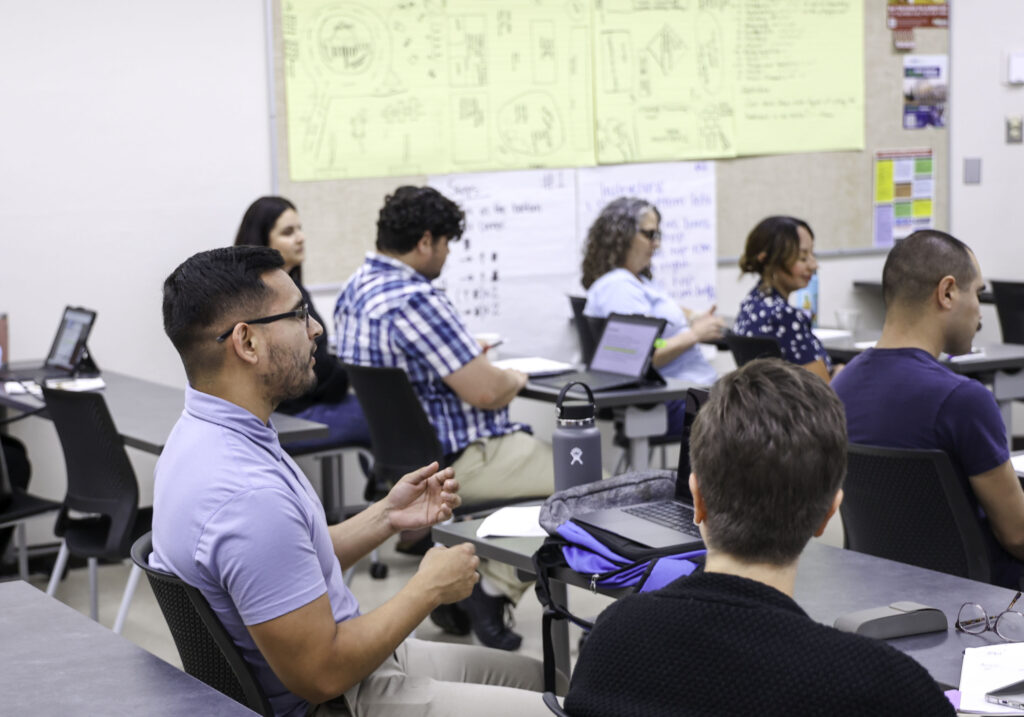
Teachers engage in discussion during an Ethnic Studies course.
Huizar says it’s important to build understanding and awareness of different people and their backgrounds, which fosters empathy and engagement with others.
KCSOS also partnered with California State University, Bakersfield (CSUB) to host the Ethnic Studies Summer Academy last month, where teachers, many of whom lack formal ethnic studies backgrounds, received training and resources to help them develop their own course curriculum. Huizar described it as teaching the teachers about ethnic studies and providing them with resources, advice, and support so they can teach it to students.
“One of the foundational tenets of ethnic studies is having students really dig into their own identity and having them realize that there’s a lot of experiences that are really human experiences,” she said. “Regardless of our background, we can all find some connection and commonality.”
Huizar cited research showing that ethnic studies courses improve students’ understanding of themselves, leading to higher academic success, graduation rates, and better school attendance rates.
“That is backed up by research,” she said. “They’ve done studies that show that students do have more academic success when they have access and opportunity to take ethnic studies courses.”
As part of the recent professional learning opportunities, teachers with the Kern High School District (KHSD) participated in field trips to places of historical significance in Kern County, including Allensworth, the Cesar Chavez monument, and a walking tour through Bakersfield. These excursions, organized and led by KHSD’s Gisela Gaona, allowed educators to become immersed in local culture and history.
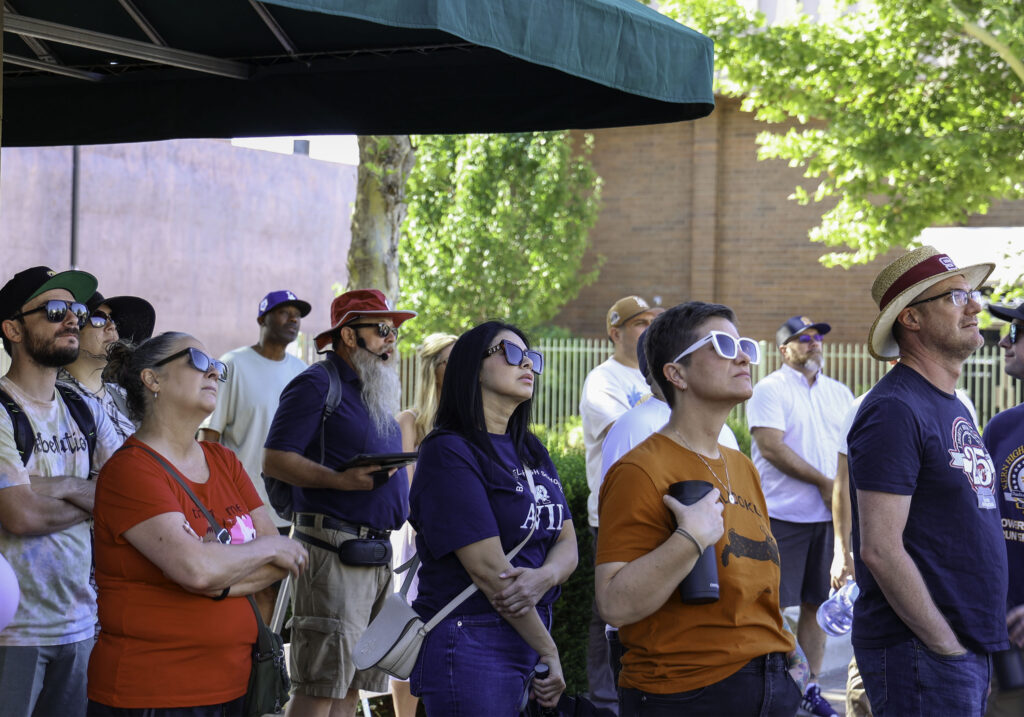
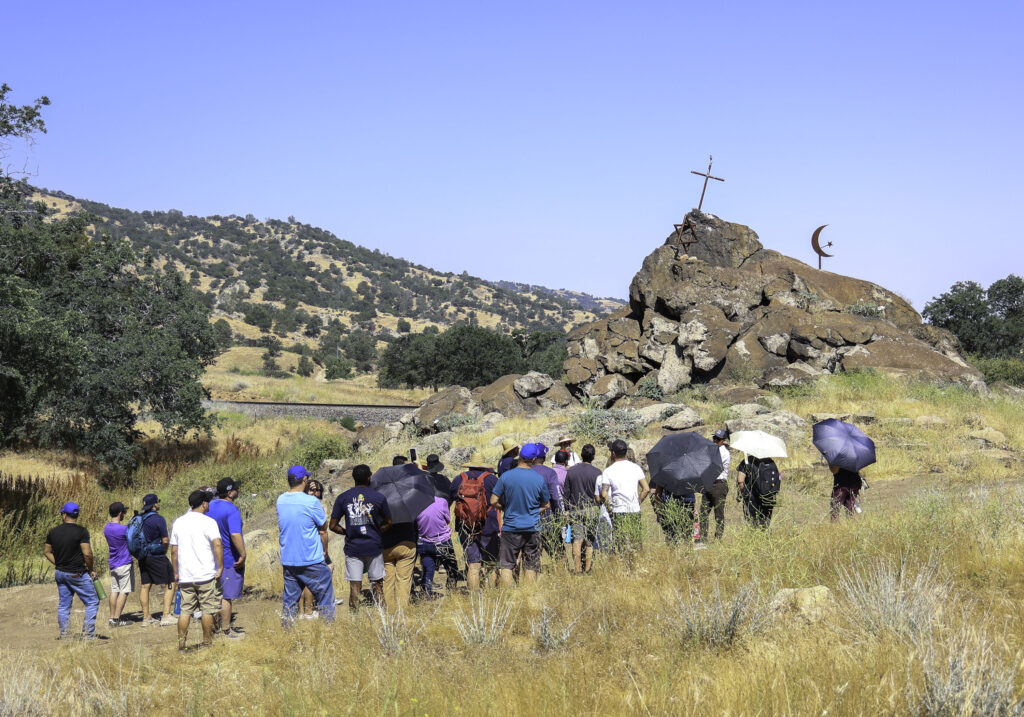
KHSD teachers on a walking tour of Bakersfield (left) and visiting the Cesar Chavez Monument (right).
Dr. Brenda Lewis, a consultant with KCSOS and former KHSD administrator, emphasized the importance of local context in ethnic studies, tailoring the curriculum to reflect the community’s demographics and history.
“This is our community, and I think it’s important to know the history of your community and the different people who made it your community,” she said.
Huizar also shared her experience as a Mexican Chicana student at UC Santa Barbara, where a Chicano studies course helped her foster a sense of pride and belonging.
“I remember how I felt being in a space where I was reading books and learning about my community and seeing myself in academia, seeing myself in the curriculum for the first time,” she said.
Lewis says the importance of teaching students ethnic studies cannot be overstated. These courses can foster empathy and understanding, which can benefit everyone, not just students.
“In the world that we live in right now, I think it’s evident that a piece of what is missing is people’s understanding and acceptance of each other and their differences,” she said. “When we can see and experience the information about different cultures, ultimately, it’s going to help all of us have a better understanding of each other.”
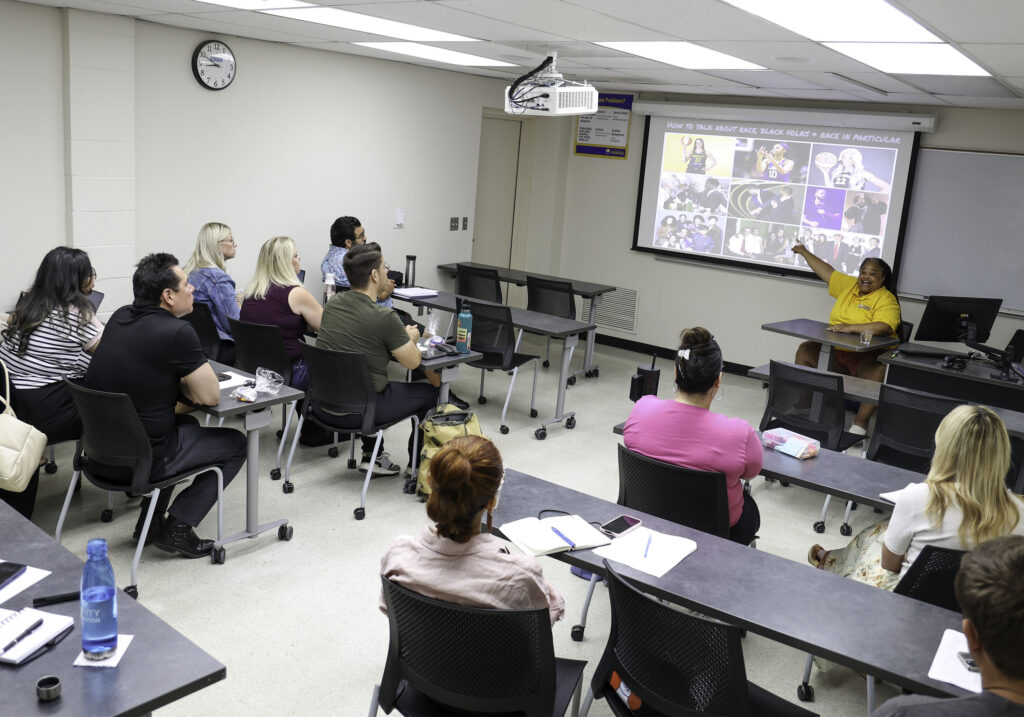

The ethnic studies summit has had a tremendous benefit for teachers. Lewis says they’re leaving this experience with the confidence to take on this new requirement. Everyone coming together to learn from each other shows what can be achieved through joint effort.
“I know from hearing the comments of the participants, they’re learning a lot. It’s really been a great, great collaboration because the learning just doesn’t stop,” she said.
Acknowledging Kern County’s conservative nature, Huizar and her team are striving to be transparent about these courses and quell some common myths about ethnic studies. They encourage districts to engage with their communities to really listen to and address their concerns.
“We’ve tried to be really cautious and understanding and we’re trying to dispel a lot of the myths of what is ethnic studies and what it’s not, and be really clear with the messaging with the districts,” she said.
KCSOS also plans to connect teachers with the Open Education Resources (OER) project, a free repository of statewide lessons and resources. This initiative aims to develop and share resources specific to Kern County and beyond.
Teachers like Lucia Medina from Independence High School and Elena Franco from Liberty High School expressed initial nervousness but gained confidence through the summer training programs. They appreciated the collaborative approach, which helped ease their concerns about teaching the new curriculum.
“I feel a lot better now. Being able to explain it to parents and the community to alleviate their worries or concerns, and then just express how important ethnic studies is for all students,” Franco said. “It’s going to be really good for everyone to learn about their history and their culture.”
Dania Martinez from North High School emphasized the importance of representation in the curriculum. She shared a poignant moment when a student asked about learning from the perspective of someone who looked like them. Martinez believes that ethnic studies courses will help minority students feel included in history.
“This is just a great way to start getting them to think about that and seeing themselves because they are a part of history,” she said.

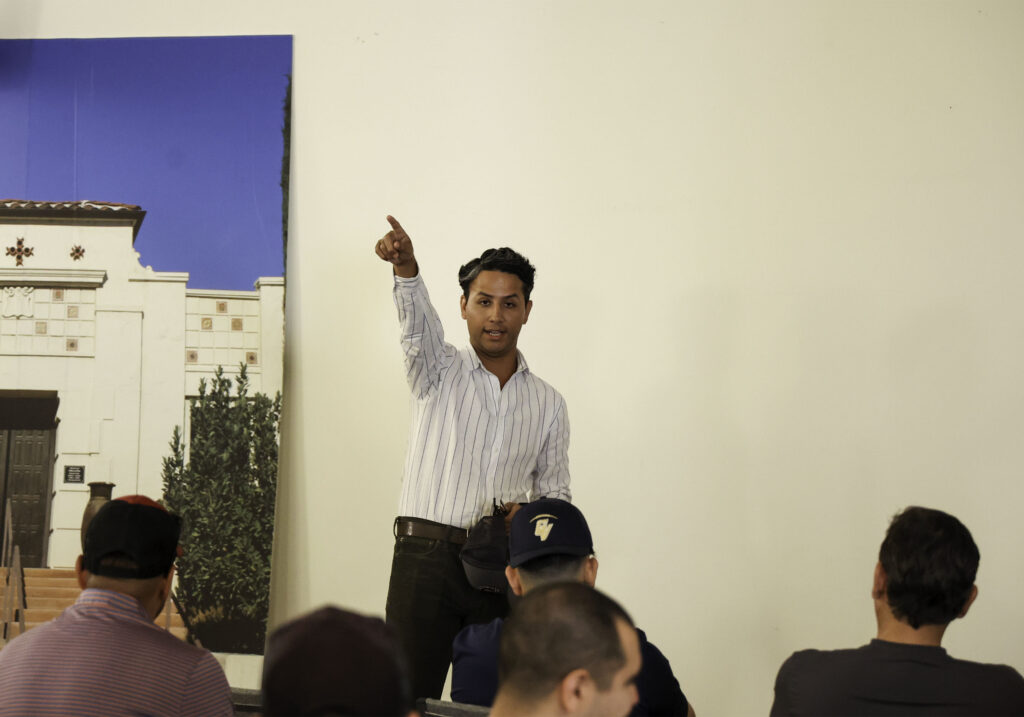

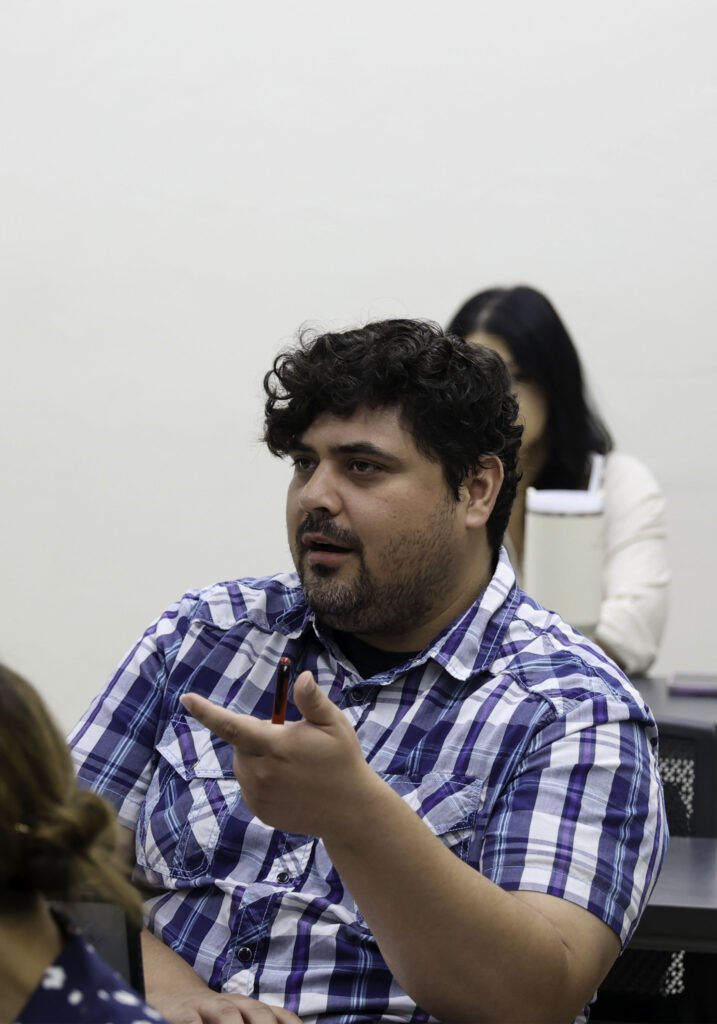
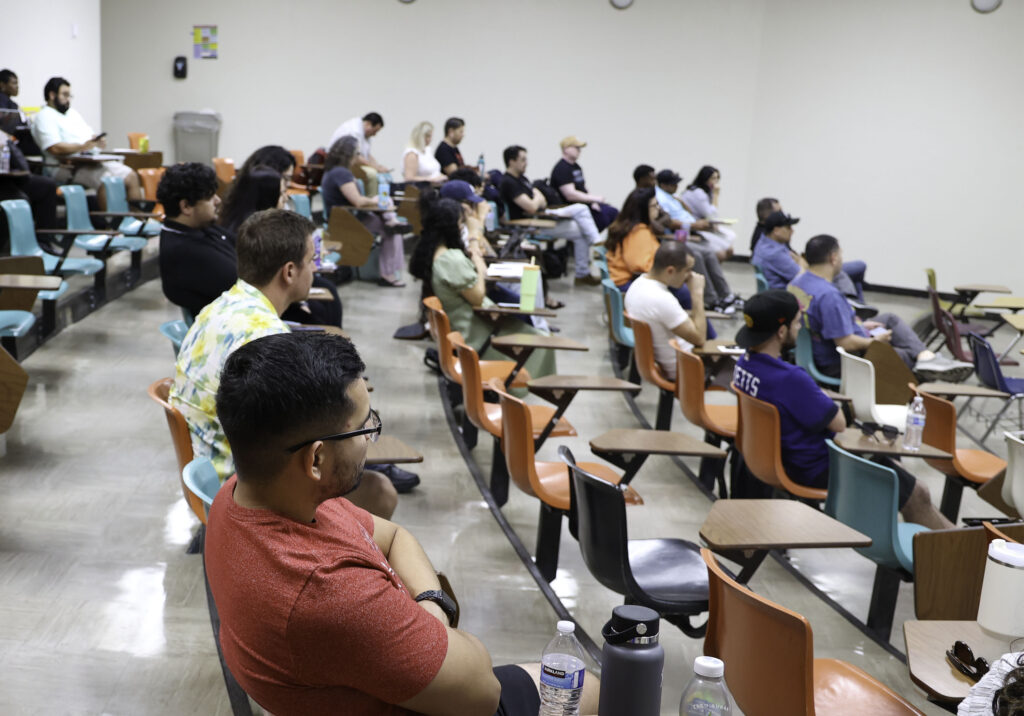

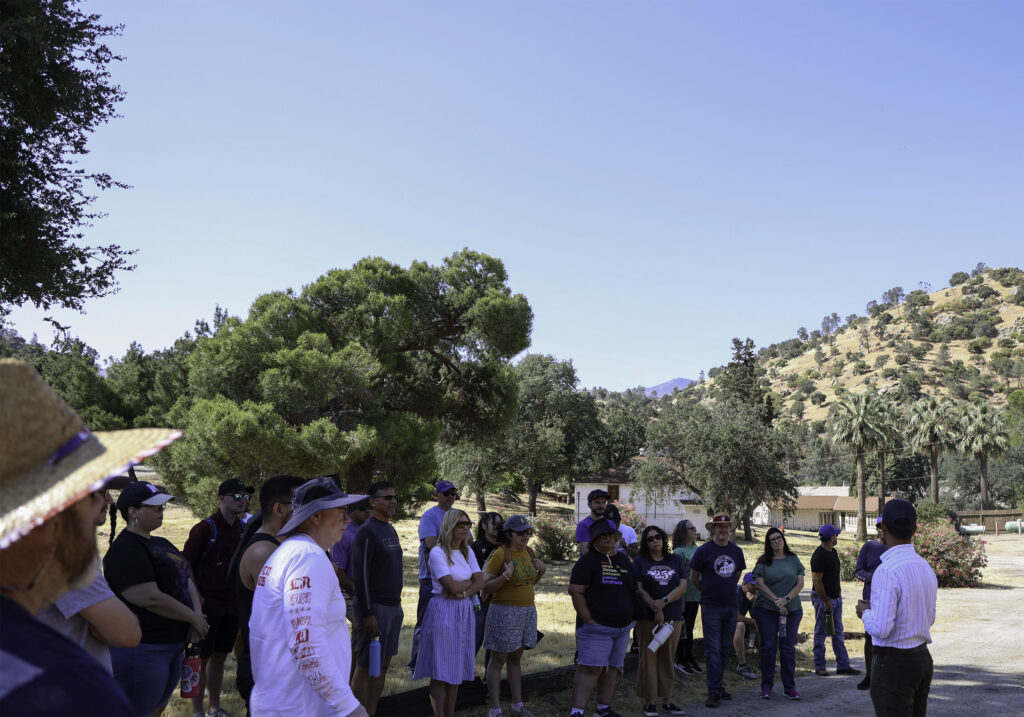

By Katie Avery
Katie Avery joined the Kern County Superintendent of Schools in 2023 as a Communications Specialist. As a former journalist and marketing professional, her passions include media and storytelling. Before joining KCSOS, Avery worked for various local TV stations as well as the health care industry.
